Part 2
What exactly is preeclampsia?
Carrying on from part 1 of pregnancy health info, I want to explain what preeclampsia is and how to avoid it. Preeclampsia is also known as toxaemia and only affects pregnant women. Those who have suffered it before are more prone to the condition with subsequent pregnancies.
and how to avoid it. Preeclampsia is also known as toxaemia and only affects pregnant women. Those who have suffered it before are more prone to the condition with subsequent pregnancies.
Preeclampsia occurs in 7% of all pregnancies around the world and is one of the major causes of maternal deaths. 10 million women worldwide contract preeclampsia (often referred to as pregnancy-induced hypertension) each year. The yearly maternal death rate from this illness is 76,000. Also there are approximately 500,000 infant deaths per year because of this condition.
Hypertension and Proteinuria
If you have both high blood pressure and protein in your urine you will be diagnosed with preeclampsia. Urinary excess of protein is considered abnormal in pregnant women when it exceeds 300 mg/24 hours at anytime during gestation. For the most part, this condition will not show itself until at least 20 weeks of pregnancy but more commonly occurs after 37 weeks.
Why is it harmful?

It can progress rapidly and escalate into causing seizures at which point it is classed as eclampsia. Eclampsia can cause premature labour, premature births and cerebral palsy in the newborn child. Having this condition causes your blood vessels to constrict which will result in elevated blood pressure. The decreased blood flow can affect various organs in your body including the brain, liver and kidneys. Apart from that, less blood flow reaches the uterus and this can produce problems for baby. Growth can be stunted and amniotic fluid decreased and this could cause a condition where the placenta separates from the uterine wall.
So what can we do?
Apart from the obvious which I mentioned in Part 1 ie. wholesome food, no junk, no sodas, no alcohol, no drugs, plenty of fresh fruit, veggies, fish etc., if your levels of magnesium (Mg) are not adequate then your pregnancy will not be normal. During pregnancy, the requirements for Mg in placental and fetal tissues increases. As most of the population are deficient in this mineral in the first place, this extra burden on a pregnant mother’s body can be detrimental to her and her baby. Mg plays a vital part in pregnancy and in the fetus and early life of a newborn. So many problems that mother and baby have to deal with in pregnancy can be resolved just with a good quality Mg supplementation.¹
 Backward Britain
Backward Britain
Mg for hypertension and toxaemia, known as eclampsia, in pregnant women was used as far back as the 1930s. It soon became standard treatment within Europe and the United States for pregnancy induced high blood pressure and convulsions caused by eclampsia. For some strange and inexplicable reason, the UK ignored the known benefits of Mg for this condition and just 2% of obstetricians in Britain used Mg for the treatment of eclampsia until the mid 1990s. This reluctance by the UK to accept the research was termed as a scandal in 1996!
MAGPIE
Subsequently, a large trial was started at Oxford University in England using over 10,000 women with preeclampsia to resolve once and for all if Mg could indeed prevent severe hypertension and convulsions caused by eclampsia. This despite the merits of Mg being proven way back over 40 years earlier! The trial was called MAGPIE (Magnesium for Prevention of Eclampsia trial). Needless to say, it was proven that Mg did indeed reduce the incidence of eclampsia by 58%. It is also interesting to note that preterm deliveries, low birth weight and infant deaths were more prevelant in those on the trial given a placebo and no Mg.³
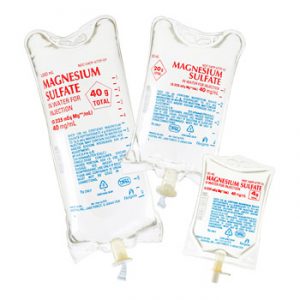 Mg versus drugs
Mg versus drugs
Big Pharma are forever trying to dislodge Mg with one of their antihypertensive and anticonvulsive drugs. However, most studies show that Mg is more effective than any unnatural drug that Big Pharma have come up with thus far. Mg decreases both mother and baby deaths and is extremely safe being a mineral that is vital and naturally needed by the body and even more so during pregnancy. As an eminent researcher and doctor once said “The significant improvement in fetal outcome with dietary magnesium supports the concept of magnesium supplementation during pregnancy.”²
WHO (World Health Organisation)
According to WHO, “Magnesium sulfate is the treatment of choice for women with eclampsia. The duration of treatment should normally not exceed 24 hours beyond delivery or the last convulsion, whichever occurs last. Either intravenous or intramuscular route can be used for maintenance therapy. Clinical monitoring of respiration, urine output and tendon reflexes is essential, while serum monitoring is unnecessary and should not be used”.
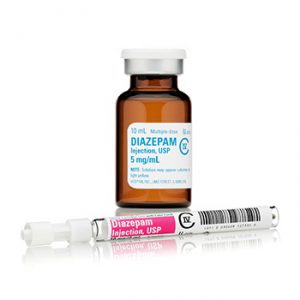 Results of numerous studies
Results of numerous studies
Three recently updated Cochrane systematic reviews compared MgS04 (Magnesium Sulphate) with diazepam, phenytoin and lytic cocktail (a mixture of chlorpromazine, promethazine and pethidine), for the treatment of antepartum, intrapartum and postpartum eclampsia.
Compared with diazepam, phenytoin and lytic cocktail, the use of MgSO4 significantly reduced the recurrence of convulsions as follows, respectively:
- by 57% [relative risk (RR) 0.43, 95% confidence interval (CI) 0.33–0.55, seven trials, 3096 patients];
- by 66% (RR 0.34, 95% CI 0.24–0.49; six trials, 972 women);
- and by 94% (RR 0.06, 95% CI 0.03–0.12; three trials, 397 women).
What about Mg from our food?
Dietary Mg is obviously the best way to take in this vital mineral. This was quite possible in the early 20th century, when our soils were rich in all necessary nutrients. Not so now. Our agricultural practices and depletion of vitamins and minerals in our soils means that crops  no longer have the nutrients within them and Mg is especially rare in our soils. A diet rich in protein, fat, sugar, salt, phosphates, synthetic Vit D and supplemental Ca is actually deficient in Mg and increases the need for Mg in the body.
no longer have the nutrients within them and Mg is especially rare in our soils. A diet rich in protein, fat, sugar, salt, phosphates, synthetic Vit D and supplemental Ca is actually deficient in Mg and increases the need for Mg in the body.
The Calcium Frenzy!
Without Mg, Ca will not work efficiently. With our current preoccupation with consuming as much Ca as we can possible devour, it is almost impossible to get enough Mg. It’s not the quantity of Mg that’s the problem, it’s the quantity of Ca that Mg has to match to become effective. Research has shown that the ratio of Ca to Mg should be around 1 to 1. This is the ratio our ancestors evolved with. Nowadays the ratio we consume is more like 5:1 Ca:Mg which is estimated to be the average with some ratios being as high as 15:1. This is the major cause of Mg deficiency today and most of us are deficient, to some degree, because of this lack of balance. This imbalance is also the foundation of cardiovalscular disease.
Symptoms of Preeclampsia
The symptoms of preeclampsia are manyfold but I have a list of the major ones to look out for during your pregnancy. You sometimes will have no symptoms but blood pressure is the best indicator that there could be a problem. It’s a good idea to invest in a good quality blood pressure monitor so you and check it yourself daily at home. If at any time during your pregnancy you feel unwell, consult your medical practitioner.
 Please don’t be alarmed by these symptoms. If you get a headache, which is quite common during pregnancy, it doesn’t mean you have preeclampsia. As the Preeclampsia Foundation states “patient awareness of the warning signs is one of the most important tools we have to successfully help women receive the
Please don’t be alarmed by these symptoms. If you get a headache, which is quite common during pregnancy, it doesn’t mean you have preeclampsia. As the Preeclampsia Foundation states “patient awareness of the warning signs is one of the most important tools we have to successfully help women receive the 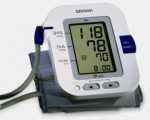 care they need. We encourage you to familiarize yourself with signs and symptoms included here to empower yourself and/or others during pregnancy”. I think it is generally recognised though, that a change in blood pressure is a warning and although it may be a false alarm, it doesn’t hurt to check it out.
care they need. We encourage you to familiarize yourself with signs and symptoms included here to empower yourself and/or others during pregnancy”. I think it is generally recognised though, that a change in blood pressure is a warning and although it may be a false alarm, it doesn’t hurt to check it out.
- Elevated blood pressure.
- Protein in your urine (Proteinuria).
- Rapidly putting on weight – 5lbs upwards per week.
- Swelling of the hands, face, ankles and feet ie. water retention. (Oedema)
- Severe headaches.
- Vision problems like flashing lights and blurriness.
- Shortness of breath.
- Back ache, stomach pain, shoulder pain.
- Hyperactivity, anxiousness feeling jumpy.
- Severe heartburn.
- Nausea or vomiting.
The total serum magnesium test
Your doctor may or may not ask for a Mg test to check your levels. I want you to know that the normal testing procedure in the UK, I don’t know about the US and other countries, is a total serum magnesium test. Now this test is next to useless in guaging how much Mg you have in your system. Less than 1% of the body’s Mg can be measured in our blood serum. Using the serum test is therefore a waste of time. As well as the small amount that can be measured, the body does react under stress and makes sure that this tiny amount in the blood is kept at a stable level. Hence, what the body’s blood levels of Mg are, bears no relation to what is actually in the whole body. Serum contains no red and white blood cells nor clotting factor.
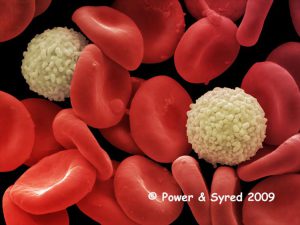 Red blood cells magnesium test
Red blood cells magnesium test
Red and white blood cells contain around 40% of the body’s Mg. As red blood cells are 500 times more prevalent in blood than white blood cells, they are the better test medium. This is a much more accurate measurement of how much Mg you have in your body.
The buccal cell smear test (EXATest)
Using scraped cells from an area in the mouth between the back of the tongue and bottom teeth provides an ideal sample for measuring the Mg in the cells of the body. This will give a good indication of the amount of cellular Mg in the heart and muscles cells. The cardiovascular system is an area of the body which will be greatly compromised with a Mg deficiency and an accurate reading of Mg levels in these areas is a useful indicator to possible serious cardio health problems.
Your Mg test results

If your doctor insists on using the antiquated serum test and he comes back to you with a ‘normal’ test result, question it. A normal result does not mean you have adequate Mg levels because of the reasons given above. A false positive is more likely the result of a serum test. If he will not do the rbc test or a buccal cell smear test, or it’s not available because of the cost, the simple answer is to just take a good quality Mg supplement. The RDA for Mg is around 300-400mg per day of elemental Mg. This is quite a low level and is only just adequate. If you also make sure you eat what little Mg there is in our diet, then this will help enormously. Check your Ca intake and make sure it’s not excessive. Don’t take ‘Tums’ and other Ca Carbonate antacids (Ca carbonate is actually just chalk). Instead supplement with Mg. It will soon sort out your digestion problems. My recommended supplements are on the side panel of this site. I use them myself taking at least 600mg per day of elemental Mg.
 Knowledge is Power
Knowledge is Power
Have a happy and healthy pregnancy, do your homework and be in control. Good luck to you and your new family:
- Altura BM, Altura BT, Carella A. “Magnesium deficiency-induced
spasms of umbilical vessels: relation to preeclampsia, hypertension,
growth retardation.“ Science 1983;221:376-8. - Seelig MS, “Magnesium Deficiency in the Pathogenesis of Disease: Early Roots of Cardiovascular, Skeletal and Renal Abnormalities,“ Plenum, New York, 1980
- Sheth S.S. and Chalmers, I., “Magnesium for Preventing and Treating Eclampsia: Time for International Action,” Lancet 359 (2002): 1872-1873
Spread the word!

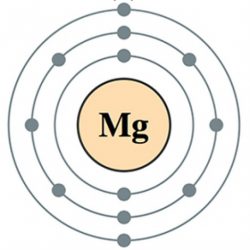
Really like your post. My wife just had a baby last month. Although we didn’t deal with this particular issue she did suffer with gestational diabetes. Fortunately all went well and her and our son are fine now. This was very informative and went over everything. I am of the belief that there are many natural treatments that we aren’t privy to. That’s because they want us to buy their drugs instead of using what God put at our disposal. If they can’t patent it then it doesn’t work.
Hi Justin, I’m so pleased you and your wife have a baby son and that you got through the gestational diabetes. This is usually short lived but does indicate that your wife is low in Mg and this diabetes was brought about by the stresses of pregnancy. More Mg is needed during gestation. She would do well to take a good quality supplement such as Mg Chloride. This will protect against gestational diabetes as well as preeclampsia for any future pregnancies and also alleviate any other symptoms she may have because of a Mg deficiency. Her energy levels will improve greatly which I suspect she will appreciate with a new baby to look after. You too would benefit from a supplement, purely because the majority of the population is deficient in this vital mineral which is needed for every one of our 37 trillion plus cells to work efficiently. If you look on the side bar of my site you will find examples of Mg supplements. There is also ReMag which can be purchased in the US and Canada. Unfortunately it’s prohibitively expensive here in the UK, so I recommend Ionic Mg which is just as good but a little cheaper. Don’t go for Mg Oxide, it’s cheap and only up to 4% bioavailable. For constipation which many suffer from who are Mg deficient, try the Mg Citrate powder, great stuff and easy to sprinkle on food, it is tasteless. For your new baby, make sure he has plenty of Foods With High Magnesium. You will protect him from serious conditons including ADHD, asthma, epilepsy, tourette’s, digestive problems, the list is endless. Good health and good luck to you and your family, Ches
Hi there Ches,
This is such a valuable and informative post!
Is Pre-eclampsia something that is hereditary also? Is it more common in overweight mothers or those with unhealthy lifestyles?
What sort of foods are rich in magnesium? I have never required Mg supplements when pregnant in the past but have always had a healthy diet, especially during pregnancy and have not had pre-eclampsia in 3 pregnancies. Hopefully this means if i have a fourth baby, I will still be ok. Do you have any recommendations for if you are trying to conceive?
I look forward to reading more, especially on pregnancy health. Will there be a part 3?
Thanks very much, Kris
Hi Kris and thanks for the comments and questions. Is preeclampsia hereditary? There seems to be little evidence for it being hereditary but Mg deficiency seems to run in families, perhaps because of eating habits copied from parents ie ‘paradigms’.
Overweight mothers or those with unhealthy lifestyles will more likely succumb to conditions during pregnancy, or any other time. Even if you’re not overweight, if you do not have a healthy diet with balanced nutrition and exercise, you leave yourself vulnerable to various problems.
If you’ve gone through 3 pregnancies without a problem then it would seem you’re doing the right thing now and during your pregnancies. I say well done! Even so it is easy to take a count of how much Mg you consume through your diet and compare it to your Ca intake. Try and keep it as near a ratio of 1:1 as you can.
As for conceiving, I think you are doing the right thing with your healthy diet and your way of life, I read your short gravatar profile. What a lovely family your have there. My next post will be on Narcolepsy and Tourette’s. As for Mg rich food, take a look at this post Foods With High Magnesium.
Good health to you and your family and have a great time travelling Aussie! Ches
Great and very extensive info. Thank you! I had never heard about preeclampsia before, but now I’ll know what when I’m pregnant again. I have always known about the importance of the magnesium, but have never been taking it from any supplements; only from food. Can too much magnesium be dangerous? Do you know what are the symptoms?
Hi Sandy and thanks for reading the post. No, magnesium is not dangerous. If you do happen to take too much, you will just get a laxative effect. Remember, magnesium is a completely natural nutrient that we all need and most of us are not getting enough of. Mg deficiency causes a plethora of conditions not least cardiovascular diseases.
I take 600mg of Mg Chloride every day, my husband takes 500mg every day. My daughters take similar amounts. My friends take it daily. Once you’ve tried it and felt the difference in your health and wellbeing, you won’t look back. It is a vital nutrient which has been depleted in our foods because of agricultural practices over the years. Soils are now so low in so many vitamins and minerals that the food produced is lacking in nutrients. Mg content has suffered more than most. You asked if too much Mg was dangerous but if you consume too much calcium (Ca) in contrast to Mg, now this can be dangerous and you will become Mg deficient by default. Take a look at this and you’ll see what I mean What is Calcification?.
Ca and Mg must be balanced at around 1:1. This is difficult to achieve because of the amount most of us consume of Ca. Many foods are fortified with Ca. They say you can have too much of a good thing and in this case it’s true!
Good health to you and your family. Ches
This is such an important topic. We hear so often that everyone can get all the vitamins and minerals they need from their food, but this simply isn’t the case, as national dietary surveys show time adn again. ALthough average intakes may seem OK, half are getting more and half are getting less.. In pregnancy especially, when you may feel queasy or unable to eat due to indigestion or bloating, it is especially problematic. Increasing intakes of magnesium-rich foods will also supply other important vitamins and minerals. There are some excellent multivits designed for use prenatally, too. Thanks.
Thanks so much for your comments and how right you are about the falling amount of vitamins and minerals we now obtain from our food. Good quality multivits are of benefit just as long as they are in balanced and not biased towards a particular nutrient which can cause an imbalance and often exacerbate problems. Ches
As a husband and new father, I really enjoyed your site. Having never heard certain terms, such as preeclampsia, before my wife’s pregnancy, I would’ve liked to know a lot of this sooner. My wife was induced out of fear that she would develop preeclampsia and it was a very scary time. All is well now though, I just wish I would’ve known some of these warning signs sooner. Even with all our modern medicine, pregancy and giving birth are still a very dangerous events for all new and soon to be moms.
I had no idea about the needs seniors have with regards to magnesium either. I think there is a lot of great information here and I will remember to come back whenever I have a question. I wish you all the best, keep up the good work!
Hi James and I’m so pleased you and your wife have come through the threat of preeclampsia and enjoying your new baby. Indeed pregnancy and birth can be hazardous especially for mothers and babies of third world countries. We all need magnesium, it is absolutely vital and many experts will tell you that if there was just one nutrient they could take, it would be this amazing mineral.
Your kind comments mean a lot and gives me the impetus to keep writing about this special nutrient. If your child always has enough magnesium, he/she will be protected against serious illnesses like cardiovascular disease in later life. Childhood diseases often have a basis of magnesium deficiency ie. ADHD, epilepsy, digestive problems, asthma etc..
Good health to you and your family. Ches
Wow! This is totally new for me. I never thought that Magnesium is so important.
Lucky for me! I take vitamins and minerals that contain Magnesium. The ratio of 1:1 to Calcium is pretty high. How can I add more Magnesium naturally to my diet?
What kind of fruit and vegetables that contain enough Magnesium?
I will check on my vitamins and minerals label to see how much I’m getting. Thank you for this lovely information!
Thanks for reading the article Ariefw and for making your comments. Keeping Mg levels in balance with Ca is the problem. Ca is a popular supplement and many people take it to excess. Too much Ca is positively dangerous for your health. Take a look at this post Calcium Side Effects. For foods that have higher Mg go to Foods With High Magnesium. Make sure your supplements are of good quality. Mg added to multivits are usually the cheap Mg Oxide which is poorly absorbed. Mg Citrate powder and Mg Chloride solution are the best IMHO. For skin application, Mg Chloride is best and goes straight into the skin to the bloodstream. See the side panel on my site for more details of these supplements. Good health to you, Ches